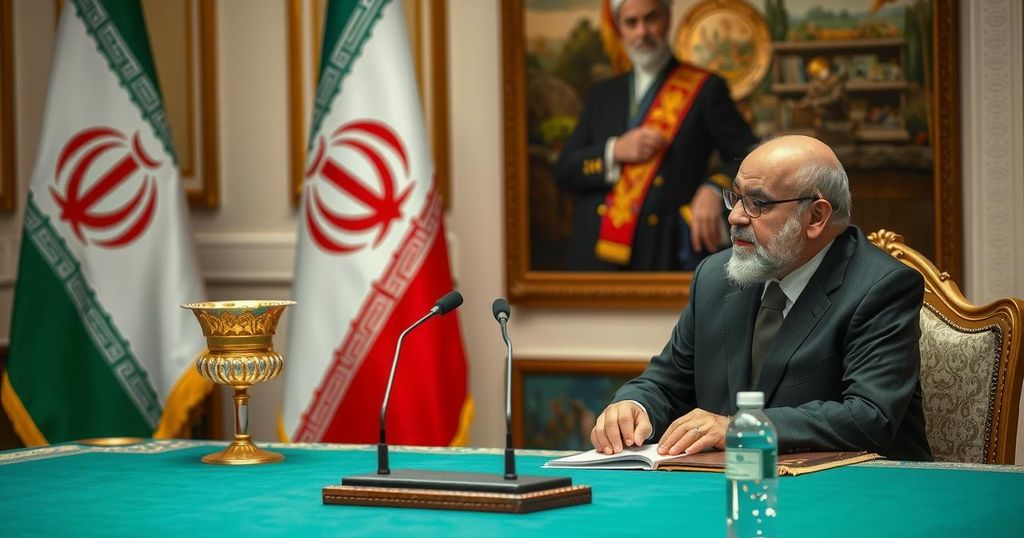Fatemeh Mohajerani, Iran’s government spokesperson, addressed concerns about the snapback mechanism and emphasized Iran’s commitment to diplomatic solutions. She provided insights on the upcoming presidential visit to Egypt aimed at enhancing economic ties. Additionally, initiatives to develop the Makran coast and potential compliance with the FATF were highlighted as significant for Iran’s economic strategy.
In a recent address during a cabinet meeting held in Tehran, Fatemeh Mohajerani, the spokesperson for the Iranian government, clarified Iran’s position regarding the potential implementation of the snapback mechanism following noncompliance claims from the West. She expressed hope for rational decision-making from Western countries and emphasized Iran’s commitment to resolving issues through diplomatic channels. Mohajerani stated, “We remain open to dialogue and strive diligently to achieve it,” highlighting ongoing efforts by the Ministry of Foreign Affairs to engage constructively.
Furthermore, Mohajerani discussed the impending presidential visit to Egypt, stating that the trip aims to strengthen economic ties and foster diplomatic relations between the two nations. She noted that there has been progress in diplomatic engagements over various administrations and reiterated the significance of this visit for enhancing cooperation.
Shifting focus to domestic economic initiatives, Mohajerani announced that the cabinet had approved several projects, including an amendment to the charter of the Makran Coast Development Council. This initiative aligns with directives from the Leader of the Islamic Revolution, Ayatollah Seyed Ali Khamenei, aimed at promoting sea-centric development. Mohajerani emphasized the economic potential of the Makran coast, declaring, “Our country’s coastline, particularly the Makran coast, is a significant asset and can serve as a major economic driver for us.”
Additionally, in response to questions regarding the Financial Action Task Force (FATF), Mohajerani conveyed optimism about achieving approval for Iran’s compliance with FATF standards. She indicated confidence in the stakeholders’ commitment to resolving national challenges, asserting, “On matters concerning our national interests, I trust that all stakeholders will work towards resolving the country’s challenges.” This commentary reflects the ongoing debate surrounding Iran’s alignment with FATF regulations, crucial for international financial integration.
The snapback mechanism is a provision within the 2015 Joint Comprehensive Plan of Action (JCPOA) allowing for the reimposition of UN sanctions in the event of alleged noncompliance by Iran. This mechanism has been the subject of contention, often regarded as politically motivated. Furthermore, the FATF is an international organization that sets standards to combat money laundering and terrorist financing, making Iran’s potential alignment with its regulations a pivotal issue in the broader context of the country’s economic and international relations. The development of the Makran coast is part of Iran’s strategic initiative to bolster its economy through maritime expansion, as emphasized by its leadership’s directives.
In conclusion, Iran’s government reiterates its commitment to diplomatic dialogue and economic development despite challenges posed by international pressures, particularly from the West concerning the snapback mechanism and FATF compliance. The upcoming diplomatic engagements with Egypt aim to enhance bilateral relations and foster economic growth along the strategically valuable Makran coast. The optimism expressed by government officials regarding FATF integration underscores an ongoing commitment to addressing national interests through collaborative efforts among stakeholders.
Original Source: www.tehrantimes.com






